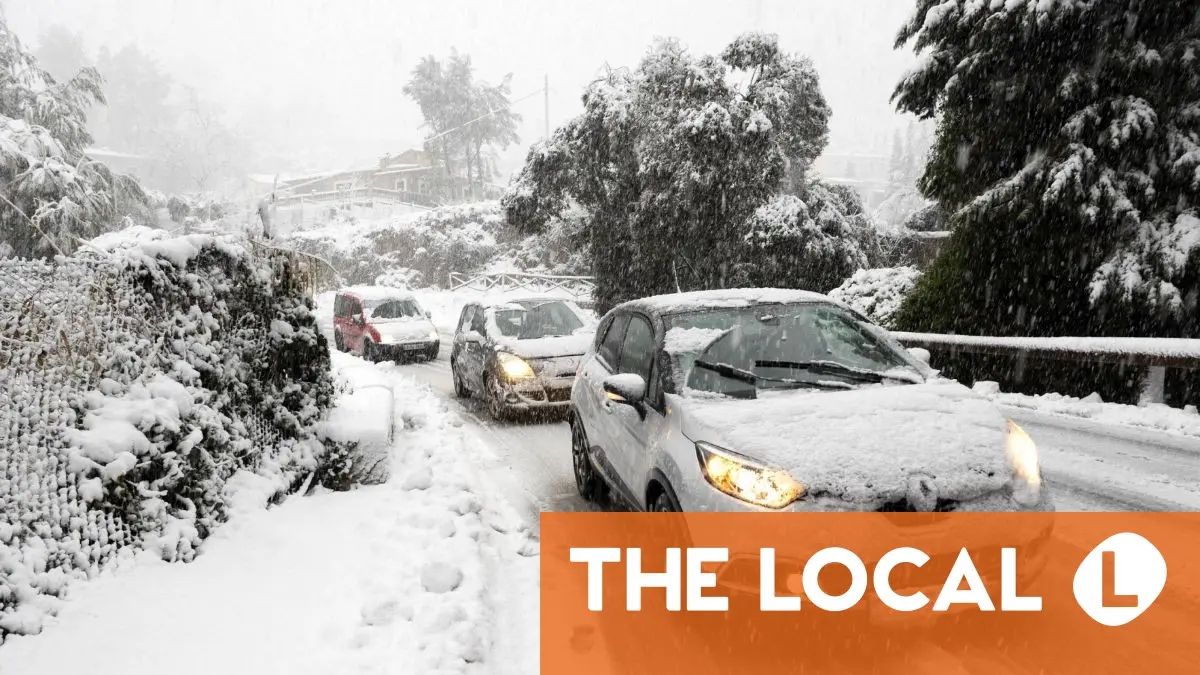How good would my Spanish have to be to get citizenship if the PP reached power?

Spain's opposition party recently announced they will raise the language level needed to obtain Spanish citizenship if they get into government in 2027. So just how fluent in Spanish would foreign applicants have to be?
Spain’s centre-right opposition party the Partido Popular (PP) have in recent weeks been outlining several measures they would be put in place to do with immigration and citizenship if they win the next general election.
With regards to obtaining Spanish citizenship under a PP government, their new plan states that "the language requirement will be raised to B2 and a reinforced test of institutional, legal, cultural, and historical knowledge will be implemented”.
READ ALSO: Opposition party calls for tougher language and culture exams for Spanish citizenship
Currently, foreigners who want to become Spanish nationals have to prove their integration into Spanish society by putting their Spanish language skills and general knowledge about Spain to the test with two exams.
The language part of the test is run by Spain’s Cervantes Institute and is called DELE, (Diplomas de Español como Lengua Extranjera), Spanish Diplomas as a Second Language.
Under the current requirements, the DELE diploma you have to obtain in order to get Spanish citizenship is level A2.
A2 is the equivalent of an upper beginner, on a scale that goes from A1 (lower beginner) to a C2 (upper advanced).
The PP want to push this language requirement up to a B2 level, which is upper intermediate. This is a whole two levels above the current requirement, which means your Spanish will have to be a lot more advanced if they get into power.
READ ALSO: The 10 migration laws that will impact foreigners if Spain's PP reaches power
According to DELE, having a B2 level in Spanish means that you can interact with native speakers “with a sufficient degree of fluency and spontaneity to enable easy and natural communication”.
You should also be able to “produce clear and detailed texts about diverse topics, as well as defend an opinion about general topics, expressing the pros and cons for each argument”.
You also need to be able to understand the gist of complex texts “about both concrete and abstract topics, including technical texts, provided they are within the candidate’s area of expertise”.
For a B2 level you should be able to speak in the present, two main past tenses, future tense, conditional tense, subjective tenses.
This means not only talking about events in the past, present and future, but also being about to talk about what you would like to do as well as expressions of necessity, doubt, emotion, or influence like in the subjunctive.
READ ALSO: How foreigners can get fast-track citizenship in Spain
It’s not just about grammar though. It’s all very well if you can fill out boxes with the correct verb tenses, but you need to be able to speak well in real life situations with native speakers and be understood. This means pronunciation, grammar and listening skills all need to be good.
As mentioned above, you’ll also need complex reading and writing skills to be able to read and write texts on a range of subjects.
Reaching B2 means you can navigate through various contexts effectively and effortlessly, ranging from informal interactions to in-depth conversations on sophisticated subjects.
According to CLIC International House language schools, it may take around 1-2 years to reach B2 level if you’re starting from scratch and studying Spanish for 10-15 hours per week.
For most non-native Spanish speakers though, you can only apply for Spanish citizenship after 10 years of legal residency here, so this should in theory give you more than enough time to get your language skills up to scratch to be able to pass the exam.
In reality though, not everyone reaches a B2 level after just 1-2 years. If you’re not actively studying Spanish for 10-15 hours every week, it could take longer. Perhaps you work full time so can’t dedicate this much time to lessons, maybe you are older and it takes you longer to learn a language or you might work in English and are surrounded by people speaking English all day instead of Spanish. In these cases, it could take much longer.
If you’ve lived in Spain for 10 years though, it’s likely you will have had to use your language skills in many different situations, no matter whether you have formally taken classes or you’ve just learnt through interactions.
From communicating with plumbers, dentists, doctors and your kids’ teachers, to the local authorities, friends and going to cultural events, you probably know more Spanish than you think you do.
If you’ve not had any formal Spanish lessons though and are considering getting Spanish citizenship in the future, it may be worthwhile getting some to prepare for your potential language exam.
Below are examples of conversations in Spanish at a B2 level. Can you follow everything they say?
You may not fit into an exact B2 level because you’ve learned in bits and pieces, so you may have to go over some things you already know or catch up to a group class. You could always get a private teacher or tutor who can tailor the lessons to exactly what you need and will help you be able to prepare for the exams.
The B2 level exam consists of four parts – a reading comprehension, a written and interaction test, a listening comprehension test and an oral test.
In order to pass, you must earn a minimum of 60 points out of 100, getting at least 30 points out of 50 in each test group.
Please sign up or log in to continue reading
thelocal




